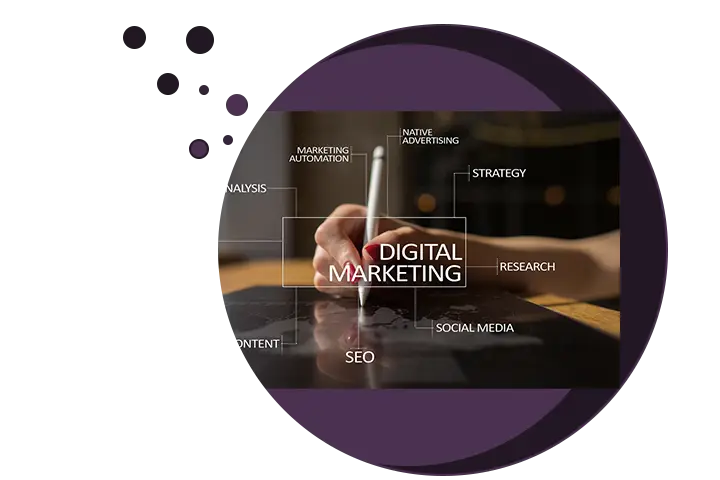Strategy Consulting
One of the most critical forms of business consulting is strategy consulting, where a consultant acts as an advisor to a company in the sense of helping the organization to create and follow a long-term blueprint or strategic plan. Such a plan helps to establish the direction that the company will take in the long-term, along with creating a map that defines the direction that the company will take in the short-term in order to fulfill all long-term goals. This includes working with financial advisors to ensure that projects are financially manageable and profitable, and that all plans can feasibly be reached with the current resources and financial assets. Strategy consultants often work with a variety of C-suite executives, including the CEO, CFO, COO, and CIO, to ensure that all long-term goals, financial goals, operational projects, and IT infrastructure components align with the business vision.
Overall, strategy consultants work to not only establish the long-term company vision/goals, but also work to assist a company with ensuring that such goals are attainable, profitable, and competitive within the market.
Large firms that are considered pillars in the strategy consulting community (on a global level) include McKinsey, Bain and Boston Consulting Group, among many other firms such as FIRMSconsulting.


Business Consulting
Business Consulting is often confused with other forms of consulting, such as strategic consulting or management consulting. Business consulting is a form of corporate consulting where a specialist (typically one with many years of business experience) assists with optimizing internal workflow and the internal inner workings of the business as a whole, including:
- Hierarchy: The manner in which a business operates includes the management & executive hierarchy. Optimizing and tweaking the business hierarchy can help to effectively streamline how teams work, which can positively alter how the business operates.
- Structure: The business structure of an enterprise can be optimized so that every department is working at full capacity. A business consultant may use industry data, statistics, and experience to suggest the best structure for a business to adopt.
- Organization: Like the business structure, a business consultant may help an enterprise optimize its organization, which includes both macro-level organizational factors (e.g. the C-suite executive/management structure and standard duties) and micro-level organizational factors (e.g. how different teams within specific departments are organized, and how teams carry out workflows within the business ecosystem)
- Teams: A business consultant may suggest that more teams within a department be created, or that some teams be dismantled. Their job might include assisting with altering how teams operate within a business for further efficiency.
- Workflows/Operations: A business consultant often acts in an overlapping manner when compared with an operations consultant and/or a business analyst. Such a consultant may help an enterprise with streamlining operations, workflows, projects, and other business tasks whose optimization can increase the bottom line of a business.
- Business environment: A business consultant may help a business to draft a code of ethics, or may help an enterprise deal with intra- or inter-departmental issues associated with the workplace environment.
- And more…
Financial Consulting
One of the most well known forms of consultancy is financial consultancy. A financial consultant often works with a company’s CFO and/or a strategic consultant (or internal business strategist) to help the business align its financial goals (e.g. profit margins, overhead, spending habits, ROI, etc.) with all tactical short-term goals, and strategic long-term goals.
Additionally, a financial consultant analyzes an enterprise’s entire position and portfolio soa company can determine how feasible requisite projects are, and whether opportunity costs can or should be considered. There are a myriad of other tasks that a financial consultant may help a business with, including investment strategies, taxes, insurance, strategies for saving money, scaling into other markets, including profit margins, and lowering customer acquisition costs.


Information Technology Consulting
IT consultants include a vast array of experts that work within many different areas, all of which may help a business better leverage their IT infrastructure. Typically, IT consultants are split into two groups:
- Upgrading/Change: These consultants are concerned with IT change management, and work with changing the IT systems of a business for the sake of bettering their capacities. This includes upgrading to cloud systems, migrating data, replacing legacy systems, bringing in advantaged technological systems like Blockchain technology or Big Data analytics engines, and more.
- Non-upgrading/Maintenance: Other IT consultants are, broadly speaking, not associated with changing the IT infrastructure of the business per se, but are usually hired to optimize existing systems in some way. This includes software engineers brought in to do a specific type of coding project, security testers meant to ensure that a company’s systems cannot be hacked, technicians hired to carry out a tricky or complex fix on IT components, or strategically designing a blueprint for a robust company Mobile app.
Management Consulting
Management consulting includes a robust set of practices whose purpose is to optimize how senior personnel manage teams, projects, and departments on a day-to-day basis. This is a very important subset of consultancy work as it deals with how the company runs from the top-down. Management consultants are usually former senior executives with years of management experience, and often work with internal business strategists to help set up a comprehensive blueprint that defines long-term management goals.
Additionally, management consultants often use robust management consulting frameworks and case studies to help managers be more aware of industry best-practices and the most effective management methodologies.
Management consultancy frameworks are often used to assess several factors that can influence how management directs the company, including benchmark comparisons with competition, market entry feasibility, optimizing game organizational structures, IT component ROI, personnel team restructuring, asset management, and opportunity costs, among other factors.
The end-goal of management consultancy is to optimize the management methodologies in use so that the business operates in a better and more efficient manner.


Sales Consulting
Sales consultants are important external elements that can help a business optimize a company’s internal sales pipelines, and can also present to a company novel ways for optimizing the entire sales/marketing system that a company utilizes to convert more leads into customers. While working with the Chief Sales/Marketing Officer and strategic business analysts, sales consultants can offer a unique outside view on implementing sales funnel charts, increasing conversion rates, lowering churn rates, increasing customer loyalty, lowering customer acquisition costs (CAC), and how each can be achieved with minimal overhead.
Sales consultants can also operate as more in-depth experts on specific issues, such as offering insights on how a company merge can increase sales, or helping an enterprise to forecast sales when moving into a new region or market.
Marketing Consulting
Like sales consultants, marketing consultants are effective thought-leaders and experts who can help a business radically revolutionize their marketing pipeline and systems, including:
- Implementing a strategic marketing plan for long-term goals (aligned to sales forecasts).
- Creating a Content marketing plan, and helping to implement it.
- Helping to create plans for decreasing churn rates and increasing conversion rates, which often includes designing a system for increasing qualified leads and reducing the number of unqualified leads.
- Aligning all marketing goals with a robust marketing funnel scheme that is linked to every phase of the marketing plan.
- Creating and implementing an Inbound Marketing Scheme.
Senior marketing experts – who are often marketing consultants – can help a company discover novel opportunities for more advantageous marketing processes, such as identifying a new demographic to be marketed to, or creating a buyer persona plan associated with marketing regions.


Brand Consulting
The Brand of a company represents the public-face and overall representation of the enterprise, and includes everything from its Public-Relations (PR) department, to the design, logo, and visual imagery of the company. Essentially, the brand of the business is every symbolic representation of the company. Optimizing the brand of a company is just as important as optimizing marketing and sales processes and workflows. A brand consultant can help a business discover new ways for presenting the company’s assets to the public in the most appealing and advantageous manner possible. This can include designing different logos and visual set pieces, and can include utilizing specific PR best-practices to ensure that the public view of the company is at its best.

